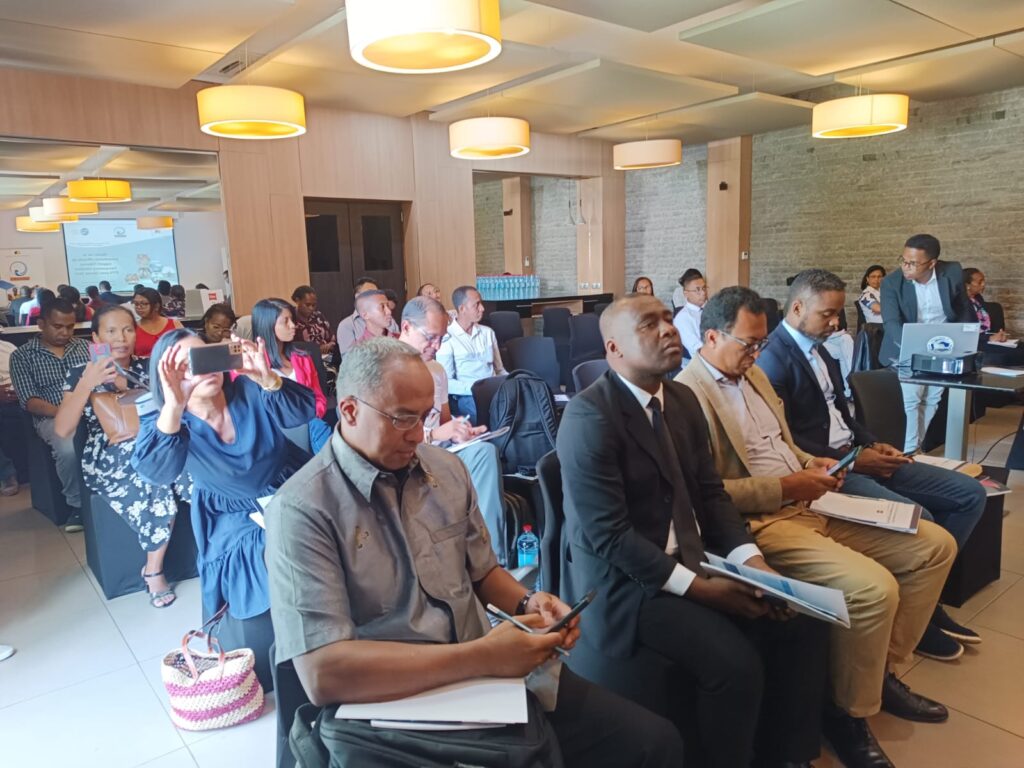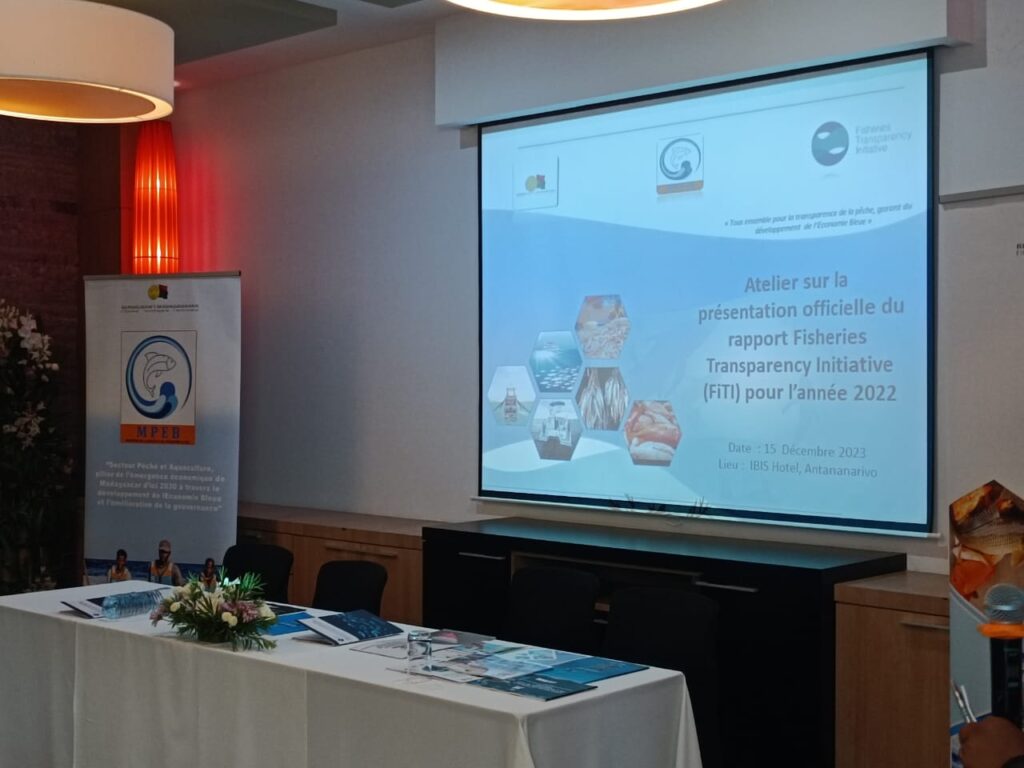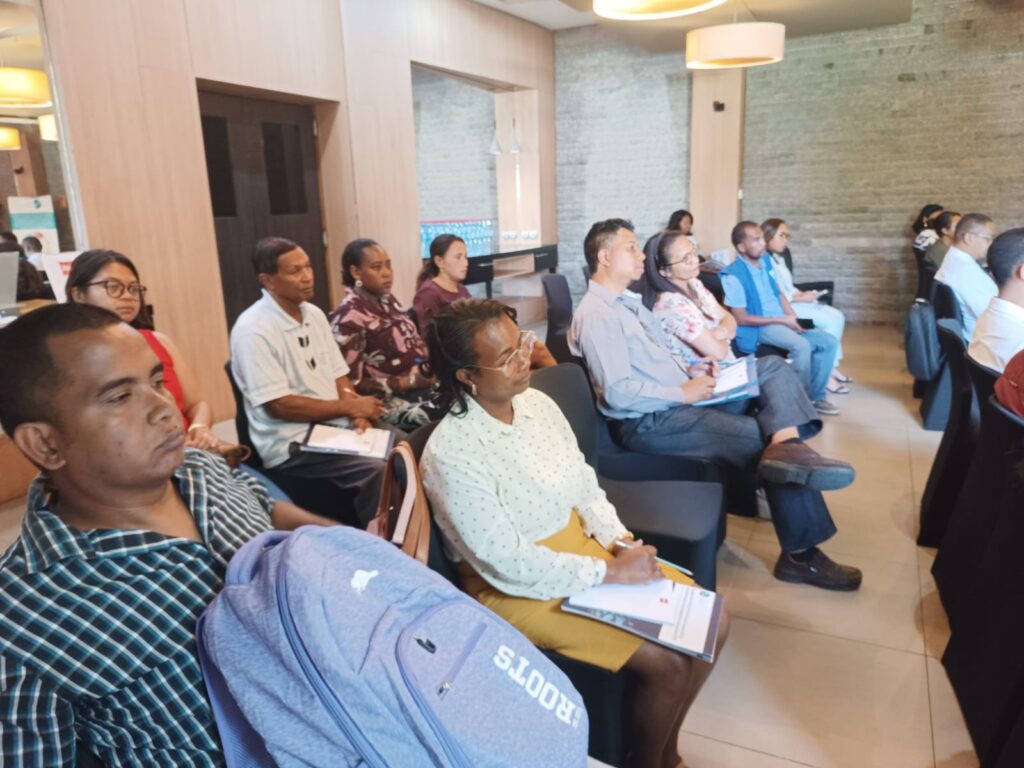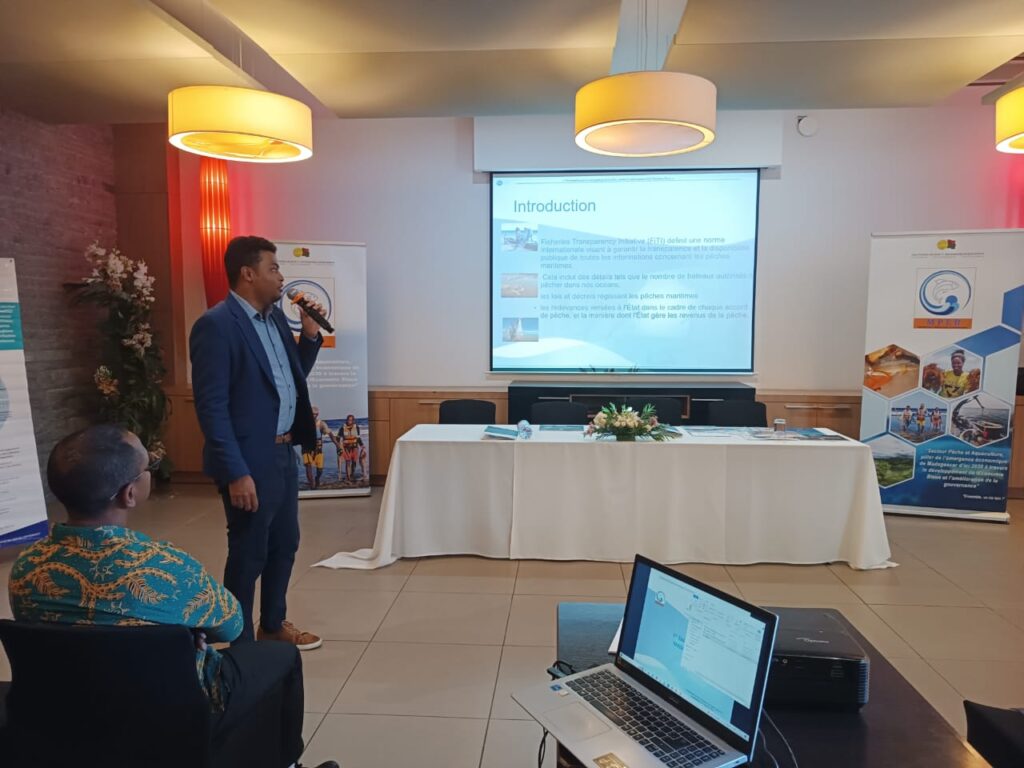Madagascar publishes first FiTI Report, demonstrating commitment to fisheries transparency
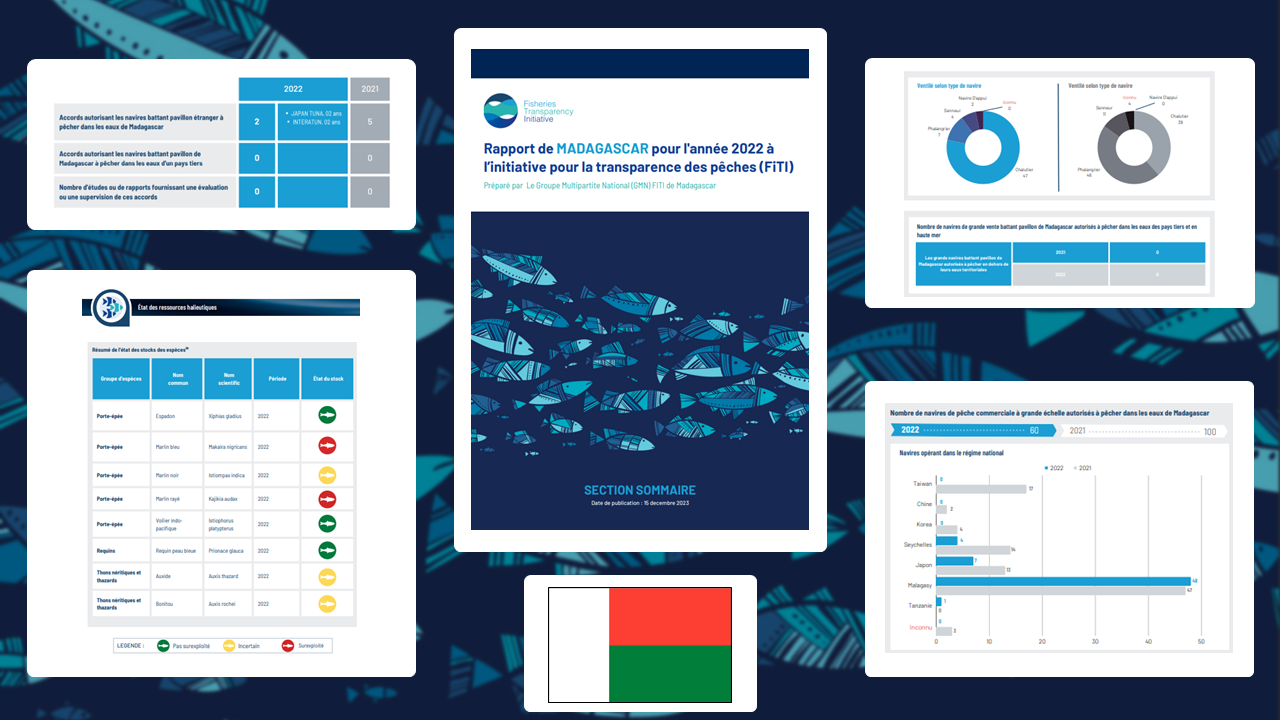
In a significant step, Madagascar‘s Multi-stakeholder Group (MSG) has published their inaugural FiTI Report, demonstrating their commitment to prioritising transparency within the fisheries sector. While the new report makes a range of previously unpublished information now publicly accessible, it also highlights a range of challenges.
The 2022 FiTI Report, published on December 15, 2023, comes just one year after Madagascar garnered global recognition by becoming the third country worldwide to achieve FiTI Candidate Country status.
Madagascar’s first FiTI Report assesses the availability and accessibility of data from six thematic areas, as outlined by the FiTI Standard. These areas encompass essential facets of transparency in fisheries management, including laws, tenure arrangements, access agreements, and information from Madagascar’s large-scale and small-scale fisheries, including vessel information, licences and catch data.
Access to such data is not merely academic; it catalyses effective decision-making, fosters accountability, and encourages informed public discourse. By facilitating stakeholder engagement and supplementing government-published data, Madagascar is paving the way for a comprehensive approach to marine fisheries governance.
Due to the publication of this report, a significant amount of information is now publicly accessible, including a comprehensive list of fisheries laws and regulations, a list of large-scale fishing vessels, total payments for industrial fishing activities, and basic information on artisanal fishing in Madagascar (e.g. numbers of boats, payments).
At the same time, the report clearly outlines that a number of important categories of information are still not accessible to the public. In particular, this includes foreign fishing access agreements with JAPAN TUNA and INTERATUN; recorded annual catches of industrial fishing for all commercial species other than tuna and tuna-like species (e.g. shrimp and prawns). The National MSG also emphasises that the state of fisheries transparency remains fragile and uncertain insofar as the policies and practices observed for a number of years suggest that it will be difficult to establish long-term lasting transparency.
According to the National MSG, “We have come a long way, and we still have a long way to go, particularly in terms of [inter alia] the collection and publication of stock information and the management of agreements and licences with a view to establishing greater transparency.”
According to Tsimanaoraty Paubert Mahatante, Minister of Fisheries and the Blue Economy of Madagascar, “This FiTI report is part of Madagascar’s commitment to good governance in line with the national strategy for good governance of fisheries and the principle of good governance directed by the plan. Thanks to this report, those involved in fisheries in Madagascar have the information they need to agree collectively on the steps to be taken to ensure the development of the sector.”
By embracing transparency as a cornerstone of governance, Madagascar underscores the pivotal role informed decision-making, stakeholder engagement, and global collaboration have in shaping a resilient and equitable future for marine resources.
Summarised and detailed versions of the new FiTI Report are available at the Madagascar Ministry of Fisheries and the Blue Economy website.
